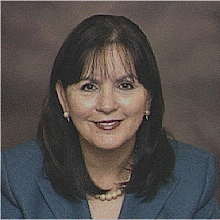Today on NBC DFW, Jennifer Weddel spoke with President Obama over the internet on cyber chat regarding why the president was still allowing work visas when her husband is an engineer, has ten years experience and has been laid off for three years. The president sidestepped the question and said he would personally look at the resume. Great President Obama. One down-13.1 million unemployed to go (per Bureau of Labor Statistics 1.31.12).
The real question wasn't answered, "Why are you still issuing work visas when employment is so high and we have qualified people here?"
Tuesday, January 31, 2012
Tuesday, January 19, 2010
PRIVACY IN THE UNITED STATES
DNA DATABASE
Improved Newborn and Child Screening for Heritable Disorder Bill
This bill sounds harmless enough, in fact, it sounds like a good idea. One step closer to finding the problem and the cure. But, if we take a closer look, this bill was signed in without a stipulation of parental consent. That might look like a red flag to some.
Why do we care if they screen our newborns, even without our consent. The following is food for thought:
Improved Newborn and Child Screening for Heritable Disorder Bill
This bill sounds harmless enough, in fact, it sounds like a good idea. One step closer to finding the problem and the cure. But, if we take a closer look, this bill was signed in without a stipulation of parental consent. That might look like a red flag to some.
Why do we care if they screen our newborns, even without our consent. The following is food for thought:
- Babies born in the United States are American citizens and as such, have all the constitutional rights adults have.
- Is a national, possible international, database being constructed? If so, what for. This information would be invaluable to many sources. Insurance companies could immediately eliminate coverage for infants that were on the list for inheritable diseases or had certain markers.
- DNA testing on an infant indirectly furnishes information on the parents.
- Citizens could be subjected to genetic testing without notification and as stated about, without consent.
- This information could be, in the future, in the right hands, a means for Euthanasia. The savings for insurance companies and the government would be phenomenal. Sounds somewhat familiar.
- The database information is secure. We know, from past experience, this just isn't true.
Monday, January 11, 2010
PRIVACY IN AMERICA
I'll start with cameras. Scientists now have cameras that recognize certain sounds such as car crashes, breaking glass and gunshots. In response to certain sounds, the camera rotates and captures what could be a criminal or terrorist act. Good so far.
Biological, chemical and radiological sensors designed to warn of a terrorist attack before it's visible or results in illness also will be installed in some cities across the United States. Some already exist, but the additions will create an incredibly powerful grid. Not many people could protest against this.
In addition to early detection of terrorist attacks, the system will be used to look for criminal activity and help the cities manage disasters. We definitely do not want terrorist attacks or criminals and if the cameras can help manage disasters, even better.
Cameras are used in the workplace to continually monitor employees throughout the workday and are justified by employers because of its potential to eliminate employee theft and cut down on industrial espionage. Good for employers, but not so much for employees.
Scott McNealy, CEO of Sun Microsystems, in 1999 declared "Privacy is dead. Get over it." But to the majority of the citizen's I spoke with, privacy is a big issue, one of which is identity theft.
Cameras are but one of the ways that privacy is under the attack. Chip implants, credit reports, computers, credit cards, passports, underwear sniffing dogs, DNA databanks, airport x-ray type machines that leave nothing to the imagination and the list continues. I've heard people say, "Well, if there is an emergency, you'll appreciate the security and you won't care about your privacy."
There are pros and cons to the invasion of our privacy for the sake of safety, but some might say, this is but one of the ways we're ushering in a New World Order.
Biological, chemical and radiological sensors designed to warn of a terrorist attack before it's visible or results in illness also will be installed in some cities across the United States. Some already exist, but the additions will create an incredibly powerful grid. Not many people could protest against this.
In addition to early detection of terrorist attacks, the system will be used to look for criminal activity and help the cities manage disasters. We definitely do not want terrorist attacks or criminals and if the cameras can help manage disasters, even better.
Cameras are used in the workplace to continually monitor employees throughout the workday and are justified by employers because of its potential to eliminate employee theft and cut down on industrial espionage. Good for employers, but not so much for employees.
Scott McNealy, CEO of Sun Microsystems, in 1999 declared "Privacy is dead. Get over it." But to the majority of the citizen's I spoke with, privacy is a big issue, one of which is identity theft.
Cameras are but one of the ways that privacy is under the attack. Chip implants, credit reports, computers, credit cards, passports, underwear sniffing dogs, DNA databanks, airport x-ray type machines that leave nothing to the imagination and the list continues. I've heard people say, "Well, if there is an emergency, you'll appreciate the security and you won't care about your privacy."
There are pros and cons to the invasion of our privacy for the sake of safety, but some might say, this is but one of the ways we're ushering in a New World Order.
Subscribe to:
Posts (Atom)
